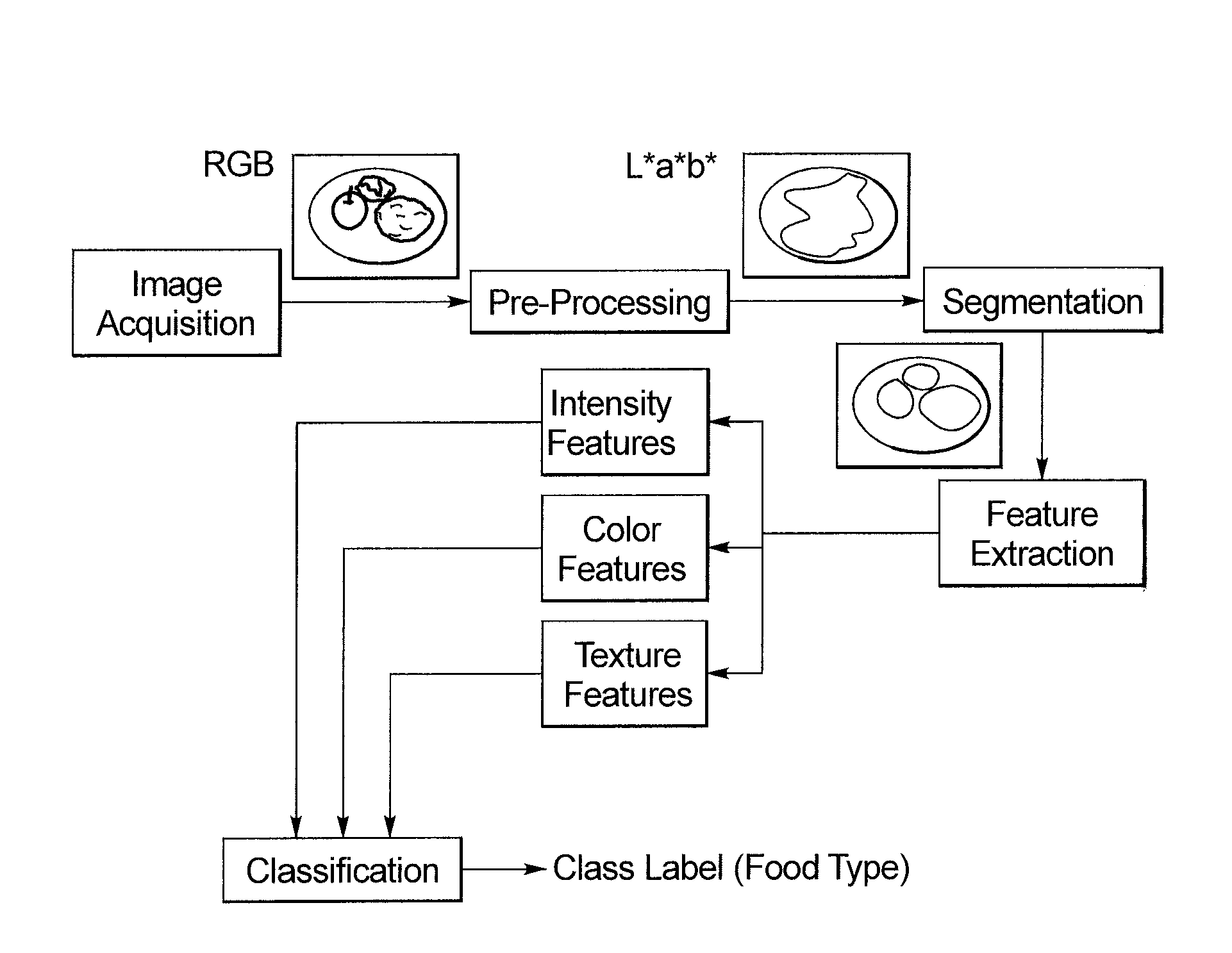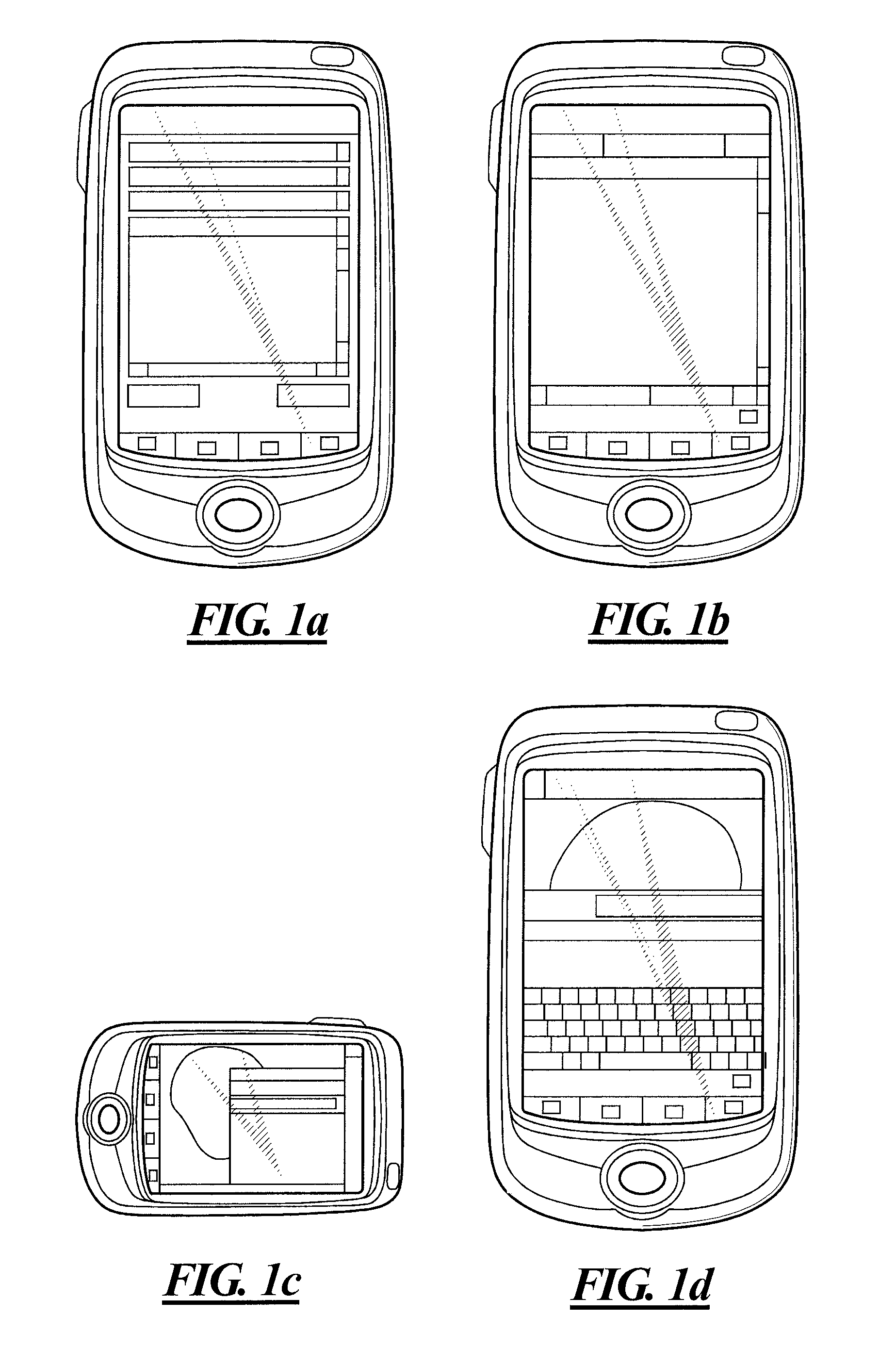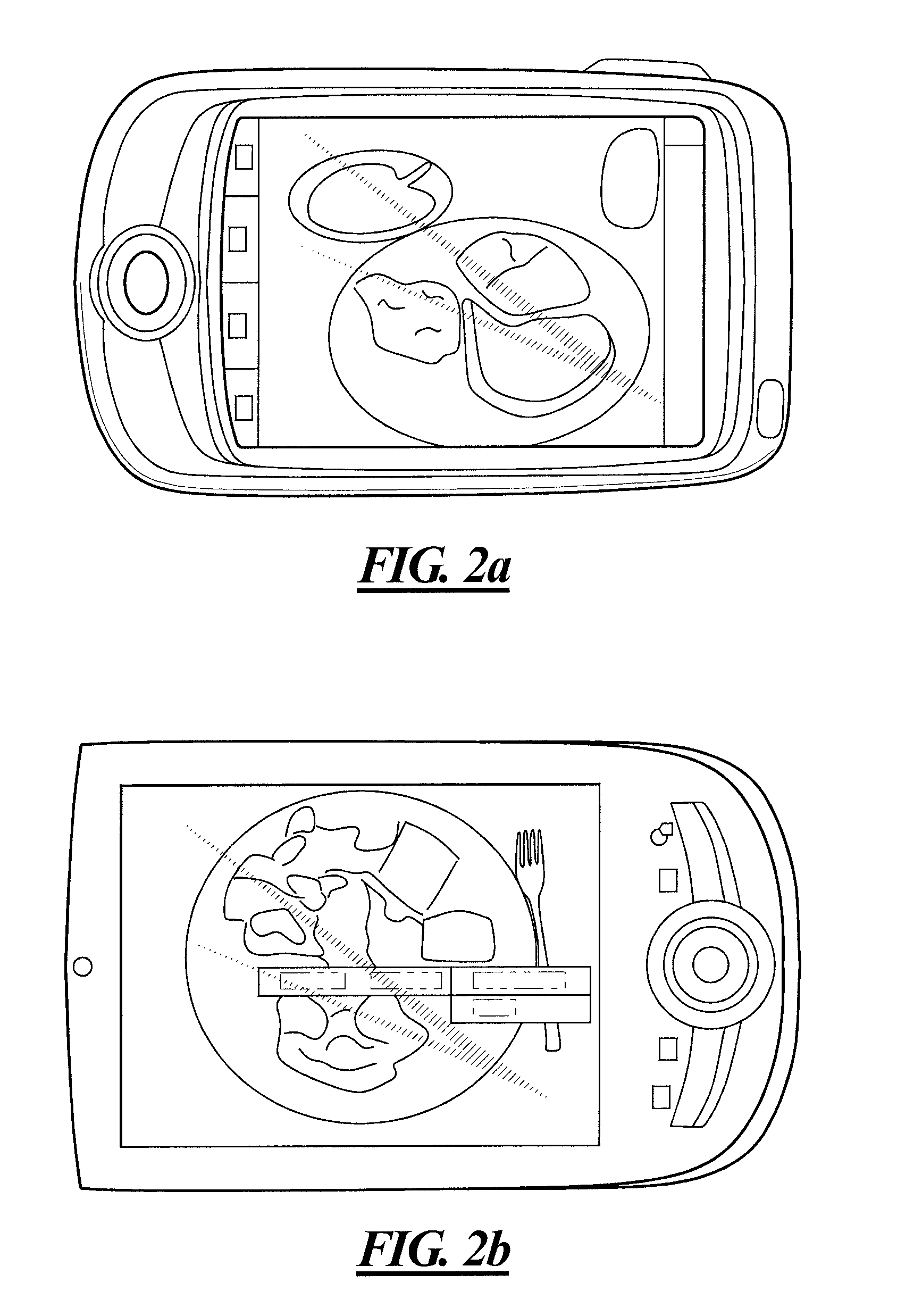Dietary assessment system and method
a dietary assessment and system technology, applied in the field of mobile phones and computing devices, can solve the problems of too few validation studies in children to justify one particular method, inaccurate assessment of dietary intake, and inability to accurately estimate nutrient, food and supplement intake. intake, the effect of easing the burden on respondent and researcher
- Summary
- Abstract
- Description
- Claims
- Application Information
AI Technical Summary
Benefits of technology
Problems solved by technology
Method used
Image
Examples
Embodiment Construction
[0036]An embodiment of the present disclosure uses a network-connected mobile device that has a built-in camera to take images of food before and after it is consumed and estimate food intake using image analysis methods. Mobile devices, such as PDAs and mobile telephones with cameras, are general purpose computing devices that have a great deal of computational power that can be exploited for this purpose.
[0037]The present system and method provides a mobile device that is attractive to users and which can be used to measure food intake. Most mobile devices include digital cameras which make taking pictures and labeling the content of the pictures less burdensome than writing on paper. The use of a mobile device that works the way young people interact with portable devices may address many of the issues outlined as barriers to recording food intake among adolescents. Young users treat their mobile device as an extension of their personality and this has been considered in the desi...
PUM
 Login to View More
Login to View More Abstract
Description
Claims
Application Information
 Login to View More
Login to View More - R&D
- Intellectual Property
- Life Sciences
- Materials
- Tech Scout
- Unparalleled Data Quality
- Higher Quality Content
- 60% Fewer Hallucinations
Browse by: Latest US Patents, China's latest patents, Technical Efficacy Thesaurus, Application Domain, Technology Topic, Popular Technical Reports.
© 2025 PatSnap. All rights reserved.Legal|Privacy policy|Modern Slavery Act Transparency Statement|Sitemap|About US| Contact US: help@patsnap.com



